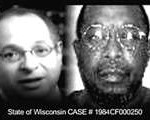We Elect Judges, Don’t We?
It is hardly a revelation, but the Laurel Walker of the Journal Sentinel has done a study demonstrating that a bit more than half of the circuit judges in the five county area assume the bench by appointment, rather than election. This is an important aspect of judicial selection in our state and the paper does a service by informing the public (and, I suspect, much of the bar) of the fact that many of our judges are selected, in the first instance, by the Governor and not the electorate.
My colleague, Peter Rofes, is certainly correct to note that, in some sense, this demonstrates that a “harsh dichotomy between so-called elector systems and appointment doesn’t really exist.”
But, while I agree that the dichotomy may not be harsh, it remains significant. While the Journal Sentinel is correct to note that challenges to sitting judges are rare, they are more frequent (although still probably not very frequent) when the incumbent is a sitting judge who has not yet faced the electorate. I supervised a study of that a number of years ago in defending a challenge to Wisconsin’s system of electing judges under the Voting Rights Act. My sense is that things haven’t changed much.
This is where the dichotomy reasserts itself and does so in at least three ways. First, governors know that their appointees are subject to electoral challenge and the electability of prospective judges is a consideration in choosing appointees. Second, although incumbency in and of itself confers certain advantages, it is not as strong for new appointees. Every new judge knows that securing an uncontested election is not a matter of happenstance and, in many (if not most) cases, must be made to happen. The first order of business is to line up support and fundraising to dissuade potential challengers. Every judge knows that the absence of a challenger often requires hard work. Third, while challenges are not frequent, they are not unknown and they do happen. Appointed judges get beat. Everyone knows this and that has – for better or worse – an “accountability” impact on newly appointed incumbents.
So, if the study were to be used to argue that we don’t “really” elect judges anyway and so we should accept Sandra Day O’Connor’s invitation to drop our electoral system, I think that the situation of the ground is far more nuanced. In any event, there is, rightly or wrongly, a strong public commitment to electing judges. I do not see our system changing any time soon.
Although it is beyond the scope of the Journal Sentinel’s study, I think it would be interesting to consider why so many circuit court vacancies occur. We don’t see half of other public offices becoming open during the incumbent’s term of office.
Part of the answer, I think, would be that new branches have been created during this period so the number of vacancies is less than half. Still, the vacancy rate would remain well above what we see for other elected offices.
Is their just more career dissatisfaction among circuit court judges leading to more resignations? Is it the length of a judge’s term? Does the fact of gubernatorial appointment create incentives for sitting judges to time their retirement in order to create an opportunity for lawyers of the same party?
Cross posted at Shark and Shepherd

 Apparently, the Wisconsin Supreme Court is not the only one sharply divided on an array of issues and fighting over questions of recusal. In Michigan,
Apparently, the Wisconsin Supreme Court is not the only one sharply divided on an array of issues and fighting over questions of recusal. In Michigan,  I was interested in Lisa LaPlante’s post on torture. It came hard upon my attendance at a conference on Christian Realism in which the matter of hard choices got quite the attention. My comment got so long that I’ve decided to make it a post. I offer it here in the interest of stirring up some controversy to wake us from the haze of our tryptophan coma.
I was interested in Lisa LaPlante’s post on torture. It came hard upon my attendance at a conference on Christian Realism in which the matter of hard choices got quite the attention. My comment got so long that I’ve decided to make it a post. I offer it here in the interest of stirring up some controversy to wake us from the haze of our tryptophan coma.